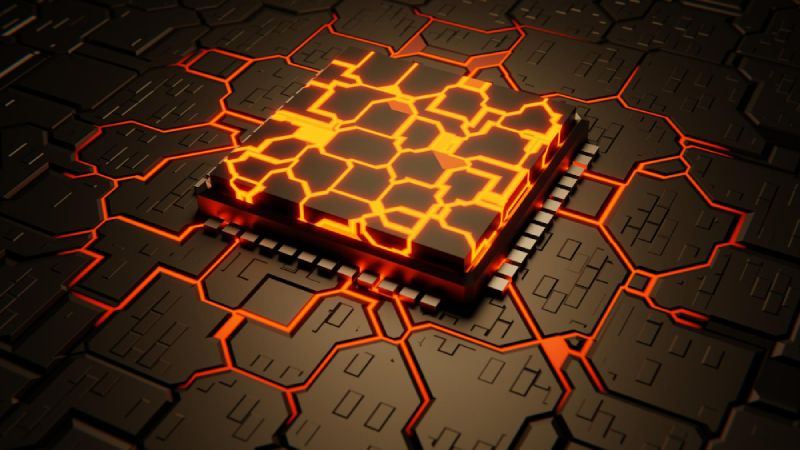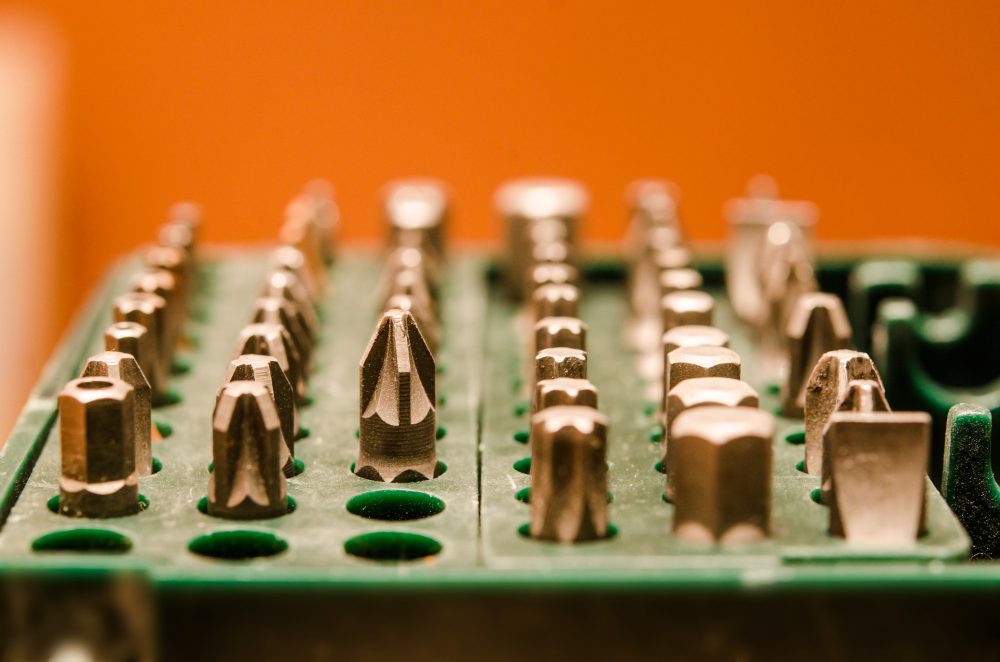Does SSD improve FPS?
The question of whether Solid State Drives (SSDs) can improve FPS (Frames Per Second) in gaming is a common one among gamers and PC enthusiasts. While it is true that SSDs can provide faster load times and improve overall system performance, their impact on FPS specifically may not be as significant as some might expect.
What is an SSD?
An SSD is a type of storage device that uses flash memory to store data, as opposed to traditional hard disk drives (HDDs) that use spinning platters. This difference in technology allows SSDs to access data much faster and have lower latency compared to HDDs. As a result, SSDs have become increasingly popular for their ability to reduce boot times, improve software loading speeds, and enhance general system responsiveness.
The Role of FPS in Gaming
FPS is a crucial metric in gaming as it determines the smoothness and fluidity of gameplay. A higher FPS means that the game is running more smoothly and responsively, while a lower FPS can lead to laggy and choppy gameplay. Achieving a high and stable FPS is often desired by gamers, as it enhances the overall gaming experience and gives players a competitive edge.
Load Times vs. FPS
While an SSD can significantly reduce load times in games, it does not directly impact the FPS during gameplay. Load times refer to the time it takes for a game to start up or for levels/maps to load, while FPS refers to the frame rate experienced during actual gameplay.
Having an SSD can certainly help reduce the waiting time between launching a game and being able to jump into the action. However, once the game is running and the gameplay begins, the difference in FPS between using an SSD and an HDD is negligible for most games.
Bottlenecks and Other Factors
It’s important to note that FPS can be affected by various factors other than storage drives. The performance of a game also depends on the graphics card, CPU, RAM, and overall system configuration. If any of these components are not able to keep up with the demands of the game, the FPS may still be limited even with an SSD.
Will 32GB RAM improve FPS?
Introduction
When it comes to gaming, every player wants the best performance possible. One factor that often gets overlooked is the amount of RAM in your system. Many gamers wonder if upgrading to 32GB of RAM will improve their FPS (Frames Per Second) and enhance their gaming experience. In this article, we will explore whether or not having 32GB of RAM can indeed have a positive impact on FPS.
The Role of RAM in Gaming
RAM, or Random Access Memory, plays a crucial role in gaming performance. It acts as a temporary storage space for data that your computer needs to access quickly. This includes game assets, textures, and other important files. Insufficient RAM can lead to slower loading times, stuttering gameplay, and decreased overall performance.
Benefits of Upgrading to 32GB
Upgrading from lower amounts of RAM to 32GB can provide several benefits for gamers. Firstly, it allows for smoother multitasking while gaming. You can run resource-intensive applications in the background without impacting your gaming performance. Secondly, it reduces the need for virtual memory usage, which can cause significant slowdowns. With more RAM available, your computer can store data directly in memory, resulting in faster access times.
However, Will it Improve FPS?
While having more RAM is beneficial for overall system performance, it does not directly translate into higher FPS. The primary factors affecting FPS are the capabilities of your CPU (Central Processing Unit) and GPU (Graphics Processing Unit). If these components are unable to handle the demands of a game, increasing the RAM alone will not magically improve FPS.
Is 100 CPU bad for gaming?
When it comes to gaming, having a high-performing CPU is crucial for a smooth and immersive gaming experience. However, many gamers wonder whether running their CPU at 100% capacity during gameplay is harmful or not.
The Impact of High CPU Usage
Running a CPU at 100% capacity for extended periods can lead to increased heat generation, which may eventually affect the performance and lifespan of your CPU. Overheating can cause the CPU to throttle, leading to decreased performance and potential game lag.
However, not all games require the same level of CPU power. Some games are more CPU-intensive than others, meaning that they utilize more of your CPU’s resources. It’s not uncommon for modern AAA titles to push CPUs to their limits, especially in demanding situations like large-scale battles or crowded open-world environments.
Assessing CPU Performance
To determine whether running your CPU at 100% during gaming is problematic, it’s crucial to keep an eye on performance indicators. Monitoring software like MSI Afterburner or HWiNFO can help you track CPU temperature, usage, and clock speeds in real-time.
If your CPU temperatures remain within safe operating limits (usually around 80-90°C) and your system doesn’t experience any stability issues, running your CPU at 100% while gaming should generally be fine. However, if you notice excessive heat or encounter frequent crashes or system instability, it might be wise to investigate further and consider optimizing your system cooling.
Optimizing CPU Usage for Gaming
To ensure optimal gaming performance while minimizing CPU strain, consider the following tips:
- Close unnecessary background applications and processes to reduce CPU load.
- Update your GPU drivers regularly as outdated drivers can increase CPU usage.
- Consider overclocking your CPU if you’re comfortable with it. However, be cautious and ensure proper cooling.
- Thoroughly clean your computer’s cooling system, including fans and air vents, to improve heat dissipation.
Quote: “While high CPU usage during gaming isn’t necessarily bad, keeping an eye on temperatures and system stability is always important. With proper monitoring and optimization, you can enjoy a smooth gaming experience without compromising your CPU’s health.”
In conclusion, running your CPU at 100% capacity during gaming is not inherently bad. It largely depends on how well your CPU handles the load and whether your system remains within safe temperature limits. By monitoring performance indicators, optimizing your system, and addressing any potential cooling issues, you can ensure that your CPU performs optimally without any detrimental effects on your gaming experience.
Is i7 Too Much for Gaming?
Gaming enthusiasts often find themselves pondering over the question of whether investing in an i7 processor is necessary for optimal gaming performance. With the constant advancements in technology, it can be difficult to determine if an i7 processor is truly worth the investment for the average gamer.
The Power of i7 Processors
The i7 processor, developed by Intel, is renowned for its high processing power and multitasking capabilities. It offers better performance compared to lower-tier processors such as the i5 or i3, making it an ideal choice for tasks that require significant processing power, such as video editing, streaming, and running complex software.
Gaming Performance
When it comes to gaming, the processor plays a crucial role in determining the overall performance of your computer. While some modern games do utilize multi-threading, meaning they can take advantage of the additional cores provided by an i7 processor, the majority of games still heavily rely on single-core performance.
If your primary goal is to achieve the best gaming experience possible, investing in a high-end graphics card is generally more important than opting for an i7 processor. Graphics cards are responsible for rendering the game’s visuals, while processors handle other tasks such as physics calculations and AI computations. However, it’s essential to strike a balance between both components to avoid any potential bottlenecks.
Considerations for Gamers
If you are a competitive gamer or intend to stream your gameplay or create content, an i7 processor may offer some benefits. Streaming, for example, puts an additional strain on your CPU as it encodes and uploads the video in real-time. In such cases, having a powerful processor like the i7 can help maintain smooth gameplay while streaming.
It’s important to note that future game releases may become more optimized for multi-core processors, making the i7 a more viable choice in the long run.
However, if you are primarily focused on casual gaming and don’t plan on utilizing your computer for resource-intensive tasks, an i7 processor may be overkill and not provide a significant improvement in gaming performance compared to a more budget-friendly option like an i5.
Should I build a PC now or wait till 2023?
Introduction
Building a PC is an exciting endeavor, but timing can be crucial when it comes to technology. Many people wonder whether they should build a PC now or wait for the next wave of advancements. In this article, we will discuss the pros and cons of building a PC in the current year versus waiting until 2023.
Advantages of Building Now
1. Access to the latest technology: If you choose to build a PC now, you can take advantage of the most up-to-date components and technologies available in the market. This means you’ll have a cutting-edge system that can handle the latest software and games.
2. Immediate gratification: Building a PC now allows you to start enjoying your new system right away. With the rapid pace of technological advancements, waiting too long could mean missing out on the current state-of-the-art components.
Reasons to Wait until 2023
1. Future-proofing: By waiting until 2023, you can ensure that your PC is equipped with the latest advancements in hardware and software. This can extend the lifespan of your system and provide better performance in the long run.
2. Price drops: Over time, prices tend to drop as new technology becomes more mainstream. Waiting until 2023 may offer cost-saving opportunities, allowing you to build the same PC at a lower cost than today.
Considerations for Your Decision
1. Budget: If budget is a significant factor for you, it might be worth waiting until 2023 to take advantage of potential price drops. However, keep in mind that prices are always subject to fluctuation.
2. Urgency: If you have an immediate need for a new PC, waiting might not be an option. Consider your current circumstances and whether you can wait for the potential benefits of building a PC in 2023.
Remember: Technology is constantly evolving, and there will always be something new on the horizon. The decision of when to build a PC ultimately depends on your personal preferences and requirements.
Conclusion
Building a PC now or waiting till 2023 both have their advantages and disadvantages. It’s crucial to consider factors such as access to the latest technology, immediate gratification, future-proofing, and potential price drops before making a decision. Ultimately, weigh your budget, urgency, and overall needs to determine the best time for you to embark on this exciting journey of building a PC.
Do I really need a gaming motherboard?
In the world of gaming, having a powerful and reliable gaming setup is key. While many components play a role in creating an optimal gaming experience, one essential component that often gets overlooked is the motherboard. But do you really need a gaming motherboard? Let’s find out.
What is a gaming motherboard?
A gaming motherboard is specifically designed to meet the demands of gamers. It offers several features that are crucial for gaming performance, such as support for high-speed RAM, multiple PCI Express slots for graphics cards, robust power delivery systems, and advanced cooling options.
The benefits of a gaming motherboard
Investing in a gaming motherboard can significantly enhance your gaming experience. Firstly, it provides better stability and reliability, as gaming motherboards are built with high-quality components that can handle the heat generated by intense gaming sessions.
Secondly, gaming motherboards offer improved expandability options. They typically have more PCIe slots, allowing you to add multiple graphics cards for better gaming performance. Additionally, they often come with extra USB ports, which are useful for connecting gaming peripherals such as keyboards, mice, and controllers.
A gaming motherboard also provides better overclocking capabilities. Overclocking allows you to push the limits of your hardware’s performance, resulting in faster processing speeds and smoother gameplay. Gaming motherboards come equipped with advanced voltage regulation modules (VRMs) and superior cooling solutions, making them more suitable for overclocking.
Considerations before purchasing
While gaming motherboards have several advantages, it’s important to consider your individual needs and budget before making a purchase. If you’re a casual gamer or on a tight budget, a regular motherboard may suffice. However, if you’re a serious gamer who wants to maximize performance and have room for future upgrades, a gaming motherboard is worth the investment.
Remember, a gaming motherboard is just one piece of the puzzle. It’s essential to ensure compatibility with other components in your gaming setup, such as your CPU and graphics card. Research and compare different models to find the one that suits your requirements and offers the best value for money.
“Investing in a gaming motherboard can take your gaming experience to the next level, providing stability, expandability, and overclocking capabilities.”
In conclusion, while a gaming motherboard may not be an absolute necessity for every gamer, it can undoubtedly enhance your gaming experience, especially if you’re looking to maximize performance, expandability, and overclocking capabilities. Consider your needs, research different options, and make an informed decision to create the ultimate gaming setup.
Conclusion
In conclusion, while upgrading to 32GB of RAM can have numerous benefits for gaming performance, it will not directly improve FPS. To achieve higher FPS, it is essential to invest in a powerful CPU and GPU. However, having adequate RAM is still important to ensure smooth multitasking, faster loading times, and overall system stability. As always, it is recommended to consider your specific gaming needs and consult with experts or trusted sources before making any hardware upgrades.
“Having sufficient RAM is like having a spacious work desk – it allows you to have multiple applications and files open without feeling crowded.”
In conclusion, whether an i7 processor is too much for gaming largely depends on your specific needs as a gamer. While it can provide a slight advantage in certain scenarios, investing in a high-end graphics card and finding the right balance between components is generally more critical for optimal gaming performance. Consider factors such as your usage requirements, budget, and future-proofing before making a decision on which processor to choose for your gaming rig.



